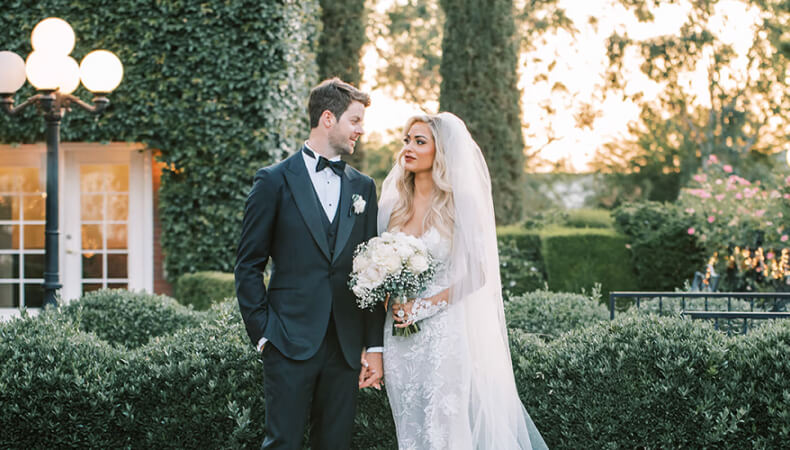Undoubtedly, one of the worst choices a couple can make is Call Off a Wedding which is frequently filled with emotional turmoil and worry. Still, it’s important to keep in mind that choosing to put long-term happiness above temporary suffering is brave and smart. Navigating the ensuing logistics and etiquette might feel daunting after the cancellation decision has been made.
This article seeks to provide you with honest, understanding answers to your urgent inquiries, therefore enabling you to gently and respectfully manage to call off wedding etiquette. From informing visitors to handling financial implications, we handle every aspect of the process.
Here is a Guide on Calling Off Wedding Etiquette
Announcing the Cancellation
Before Invitations are Sent Out
Use printed cards similar to invitations. Crafting a formal announcement card can help convey the message with the gravity and respect it deserves. Make sure the wording is clear and empathetic, ensuring guests understand the decision without delving into personal details.
Example of wording
Mr. and Mrs. John Smith
declare that the marriage of
their daughter
Emily Jane
to
Michael Davis
will not take place
After Invitations are Sent Out
Email or call everyone on the guest list. Direct, personal communication is key to conveying the seriousness of the situation. Ensure the message is concise and respectful, offering sincere apologies for any inconvenience caused. Enroll close family or friends to help spread the word.
How do you Gracefully Call Off a Wedding?
Emphasize honesty and clarity in communication. A straightforward and genuine message helps avoid misunderstandings and unnecessary speculation. Prepare a respectful statement that briefly explains the situation. If the couple feels too overwhelmed, it’s wise to delegate this task to supportive family members or friends who can handle it with care.
What to say When the Wedding is Called Off?

Explaining the Cancellation
No explanation is necessary when canceling a wedding. This is a very personal choice, so your privacy should be respected. However, one should advise against sharing on social media, as a public declaration could attract undesired attention and queries. Rather, interact personally with close friends and relatives to keep the narrative under control.
Avoiding social media also helps stop the spread of rumors and speculation, enabling you to control the matter more subtly and gently. Emphasize going ahead and handling pressing issues instead of defending your choice to others.
Responding to Persistent Questions
Responding to ongoing questioning is best done with a straightforward, polite response. Something like “We appreciate your concern, but it’s a personal matter we’re not discussing at this time,” would work. Having someone you trust to handle these questions can help you even more and free you to concentrate on your health.
Setting limits is crucial; express clearly that you do not want to go into greater depth on the specifics. First of importance should be your mental health; having someone else answer frequent queries will help you relax during this demanding moment.
Dealing with the Engagement Ring
Etiquette and Legal Considerations
The behavior regarding the engagement ring depends on the person calling off the wedding. If the receiver of the ring calls off the engagement, it is traditional to return the ring to the giver. On the other hand, if the giver calls off the marriage, the receiver usually retains the ring.

Legal viewpoints—those of legal professionals—suggest that the ring is a conditional gift based on the marriage’s pledge. Should the receiver cut off the engagement, they should bring back the ring. Should the giver cancel, the receiver might retain it, however. States have different laws, hence local rules are very important for particular directions. This guarantees that every action is respectful of the rights of both sides and legally sound.
Financial and Logistical Consideration
Wedding Insurance
Understanding what usual plans do protect is vital, as wedding insurance does not cover a change of heart. Usually, wedding insurance covers unplanned occurrences including family crises, extreme weather, or unexpected sickness. It may also cover lost deposits, vendor no-shows, and damage to wedding clothing or presents.

But emotional choices like calling off the wedding because of relationship problems aren’t covered. To know the degree of coverage of a policy, carefully go over the terms and conditions before making a purchase. This guarantees that you are ready for real crises even if it cannot help with a postponed event.
Returning Gifts
Etiquette dictates that all engagement, shower, and wedding gifts should be returned if the wedding is canceled. This covers unique things like monogrammed towels. Returning presents quickly and with a letter of appreciation honors the givers.
Acknowledging their consideration is vital; however, the presents are being returned because the wedding is put off. Although some guests may urge you to retain their presents, typically returning them is the courteous way of action. This maintains goodwill with friends and relatives and helps to erase any memories of the canceled wedding.
Managing the Wedding Dress
Should you buy a wedding dress, there are many options to arrange its return or sale. Start by reviewing the store’s cancellation policy; should the dress not have been altered or personalized, you may be able to negotiate a partial return. One way to help recover some expenses is by selling the outfit via resale stores like Nearly Newlywed.
For a tax benefit, bridal consultants advise thinking about sample sales or giving the dress to a charity. Every choice offers a means of moving both practically and emotionally forward, thereby transforming a challenging circumstance into one that is more under control.
Canceling the Honeymoon
Canceling a honeymoon may be difficult, particularly in the absence of a waiver covering cancellation costs. Usually not covered by travel insurance, heavy fees might apply should you have to cancel around the departure date.
Get in touch with the travel agent immediately to investigate your choices, including arranging a transfer or rescheduling for a later date. Knowing the cancellation rules at the time of booking can help avoid major problems down the road. To reduce financial loss, should plans alter unexpectedly, always inquire about waivers or flexible booking options.
Guest Travel Arrangements
When a wedding is called off, managing guest travel plans may be difficult. For hotel cancellations, contact the hotel immediately and honestly explain the circumstances to try to find a solution. Examine the hotel’s cancellation policies to learn about possible fees.
Guests will handle changes on their plane tickets, sometimes including taxes or penalties. Urge them to get in touch with their airlines right once to address rebooking or travel credit applications. Quick steps and open communication might help minimize costly effects for your visitors.
Vendor Contracts and Deposits
Refund rules for wedding planners differ and are usually found in the contract terms. If the cancellation is made long in advance, many providers provide partial refunds; nonetheless, the likelihood of a refund decreases as the wedding day approaches.
Before signing agreements, one should be familiar with these terms. If no refund policy is mentioned, you may not be able to get your deposits back. Carefully reviewing and negotiating contract terms upfront can protect your interests. Meticulous attention to these elements helps control financial effects and expectations if the wedding is called off.
Conclusion
Although calling off a wedding is never simple, treating the matter gracefully and clearly can help reduce the emotional and practical difficulties. Direct guest communication, financial responsibility management, and respect for personal limits can help you negotiate this challenging period with dignity.
Remember, first and foremost is your health and future happiness. Ask loved ones for help; approach every action with thought and care. This article seeks to provide the solutions and comfort you need throughout this period, thus enabling you to go forward with confidence and peace of mind.
FAQs
How do we handle vendor contracts if the wedding is postponed instead of canceled?
If you are postponing rather than calling off your wedding, contact your suppliers immediately to discuss rescheduling alternatives. Many suppliers will assist you in selecting a new date and handling your deposit transfers. Review and change contracts to show the revised plans, and be aware of any extra costs that might be involved.
What should we do about our wedding website?
Add a brief and straightforward notice about the cancellation or delay to your wedding website. You may reassure visitors that they will get more information via direct contact and provide simple background on the change. Remember to delete any old data and turn off RSVP capabilities.
How do we address potential awkwardness at future social events?
Attending social occasions with people invited to the canceled wedding naturally makes one uncomfortable. Should the subject come up, be kind but strong. A basic “It was a difficult decision, but it was the right one for us” might help stifle further discussion. The initial pain will lessen with time as others appreciate and understand your choice.
How do we handle financial responsibilities if we’ve already pooled funds for the wedding?
If you have combined wedding expenses, it is advisable to have an honest and open conversation about how to split any leftover money. First, list all of your costs and find out what could be reimbursed. Then, choose jointly how to manage any non-refundable deposits and remaining money. Including a neutral third party, like a financial adviser, might help guarantee a fair and peaceful outcome.







